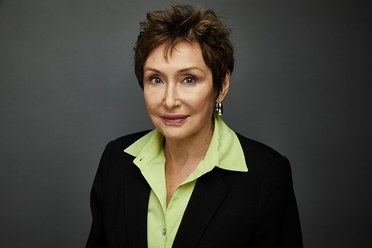
Madeline A Naegle
PhD FAAN PMHCNS-BC
Professor Emerita
madeline.naegle@nyu.edu
1 212 998 5321
433 FIRST AVENUE
NEW YORK, NY 10010
United States
Madeline A Naegle's additional information
-
-
Prof. Naegle is a Professor Emerita at NYU Rory Meyers College of Nursing. She is nationally and internationally known for program development, publications and implementation of policy in addiction, and psychiatric nursing, with a focus on older adults. Her activities have included efforts on the integration of behavioral health into health professional education and practice. Her leadership in organized nursing includes development of international consultation and education and establishment of the NYU College of Nursing WHO Collaborating Center in Geriatric Nursing Education. She was a Health and Aging Policy Fellow and served as associate director of the RMCON Center for Drug Use and HIV Research.
-
-
PhD in Nursing, New York UniversityMA in Nursing, New York UniversityBSN, College of Rochester
-
-
Mental healthSubstance use
-
-
American Academy of Nursing: Member, Expert Panel on Mental Health and Substance AbuseAmerican Nurses’ AssociationAssociation of Medical Educators and Researchers in Substance Abuse: MemberAmerican Psychiatric Nurses’ AssociationAmerican Psychiatric Nurses Association Tobacco Dependence Council: MemberEastern Nursing Research SocietyFulbright Association: New York and National ChaptersInternational Nurses’ Society on AddictionsNational League for Nursing: MemberNew York Academy of Science: Member USDHHS, Division of Nursing, Consortium on Alcohol and Other DrugsNew York University, Division of Nursing Alumni Assoc.: Member, Faculty AdvisorSigma Theta Tau, Pi Psi ChapterSigma Theta Tau, Upsilon Chapter: Member
-
-
Faculty Honors Awards
Excellence in Mentorship Award, Association of Medical Educators and Researchers in Substance Abuse (2010)Spirit Award, National Nurses’ Society on Addictions (2007)Honorary Recognition, New York State Nurses Association (2007)J.W. Fulbright Senior Fellow, University of Sao Paulo (2006)Distinguished Alumna Award, NYU Division of Nursing Alumni Association (2005)Hildegard E. Peplau Award, American Nurses’ Association (2002)Who’s Who, Medicine and Health Care (2000)Outstanding Alumna, Nazareth College of Rochester (2000)New York State Nurses’ Association Leadership Institute (1999)President’s Award, National Nurses Society on Addictions (1998)J.W. Fulbright Fellow, University of Malta (1995)Amanda Silver Distinguished Service Award, N.Y. County Registered Nurses’ Association (1994)Legislative & Health Policy Award, NYU Division of Nursing (1992)Academy of Women Achievers, YWCA (1991)Fellow, American Academy of Nursing (1989)Charter Member, Nazareth College (1988)Presidential Citation, New York County Registered Nurses’ Association (1986)Outstanding Young Women of America (1972)Sigma Theta Tau, National Honor Society for Nursing (1967)Kappa Gamma Pi, Catholic Women’s Colleges (1964) -
-
Publications
The SATOL Project : An interdisciplinary model of technology transfer for research-to-practice in clinical supervision for addiction treatment
AbstractStraussner, S. L., Naegle, M., Gillespie, C., Wolkstein, E., Donath, R., & Azmitia, E. C. (2006). In Journal of Evidence-Based Social Work (Vols. 3, Issue 3-4, pp. 39-54). 10.1300/J394v03n03_04AbstractThis paper describes the development, implementation and assessment of an innovative approach to the dissemination of evidence- based research to clinical supervision through the use of Webbased technology. The Substance Abuse Treatment On-line Library: Focus on Clinical Supervision, known as the SATOL Project, was developed by an interdisciplinary faculty group at New York University. The findings of this study document the positive impact of SATOL in helping supervisors feel more capable of mentoring and supporting their staff, in better assessing and evaluating the quality of services provided by their supervisees, and in applying empirical evidence to their daily clinical supervision practice. Limitations of the project include the short time-frame and small sample size. This model is applicable to Web-based transmission of evidence-based knowledge of other content areas.Necessary leaps for addictions nursing education and practice
AbstractNaegle, M. (2005). In Journal of Addictions Nursing (Vols. 16, Issues 4, pp. 161-162). 10.1080/10884600500434060Abstract~Substance abuse : On GeroNurseOnline Nurse Competency and Aging. Access at www.geronurseonline.org
AbstractNaegle, M. (2005).Abstract~Substance abuse : On GeroNurseOnline Nurse Competency and Aging. Access at www.geronurseonline.org
AbstractNaegle, M. (2005).Abstract~Rehab instead of prison
AbstractNaegle, M., Richardson, H., & Morton, K. (2004). In American Journal of Nursing (Vols. 104, Issues 6, pp. 58-61). 10.1097/00000446-200406000-00034Abstract~Substance abuse and addiction in registered professional nurses
AbstractNaegle, M. (2004). In J. Fitzpatrick & M. Wallace (Eds.), The encyclopedia for nursing research. Springer.Abstract~Advanced practice psychiatric-mental health nursing
AbstractNaegle, M. (2003). In M. Mezey, D. McGivern, & W. Sullivan-Marx (Eds.), Nurse practitioners : Evolution of advanced practice (4th ed.). Springer Publishing.Abstract~An overview of the American nurses' association's action on impaired practice with suggestions for future directions
AbstractNaegle, M. (2003). In Journal of Addictions Nursing (Vols. 14, Issues 3, pp. 145-147). 10.1080/10884600390245730Abstract~A world view of nurses and midwives responding to alcohol, tobacco and other drug issues
AbstractNaegle, M. (2003). In Drugs and Alcohol Today (Vols. 3, Issues 4, pp. 31-39). 10.1108/17459265200300037Abstract~Addiction : A global public health challenge for nurses
AbstractNaegle, M. (2002). In Drugs and Alcohol Today (Vols. 2, Issues 3, pp. 11-22). 10.1108/17459265200200022AbstractWith expanded technologic and communication resources there is growing awareness worldwide of the public health problems caused by alcohol, tobacco, and other drug use, misuse, abuse and addiction. Trends vary by culture and region but use of tobacco and alcohol is almost universal and is associated with high rates of mortality and morbidity. While nurses have not universally embraced the prevention and treatment of substance-related disorders as their province, this is changing as a function of organisations, World Health Organization (WHO) and national initiatives, and the strengthening of nurse education. Actions to promote consensus, identify and review competencies for nurses must consider national and cultural variations, traditions of social change and the need for evidence-based practice. Collective action by nurses in newly formed and existing organisations, which focus on addictions prevention and treatment, have resulted in initial professional steps. Such progress can be facilitated if achieved in the context of larger international policies and initiatives and in collaboration with members of other professional disciplines.